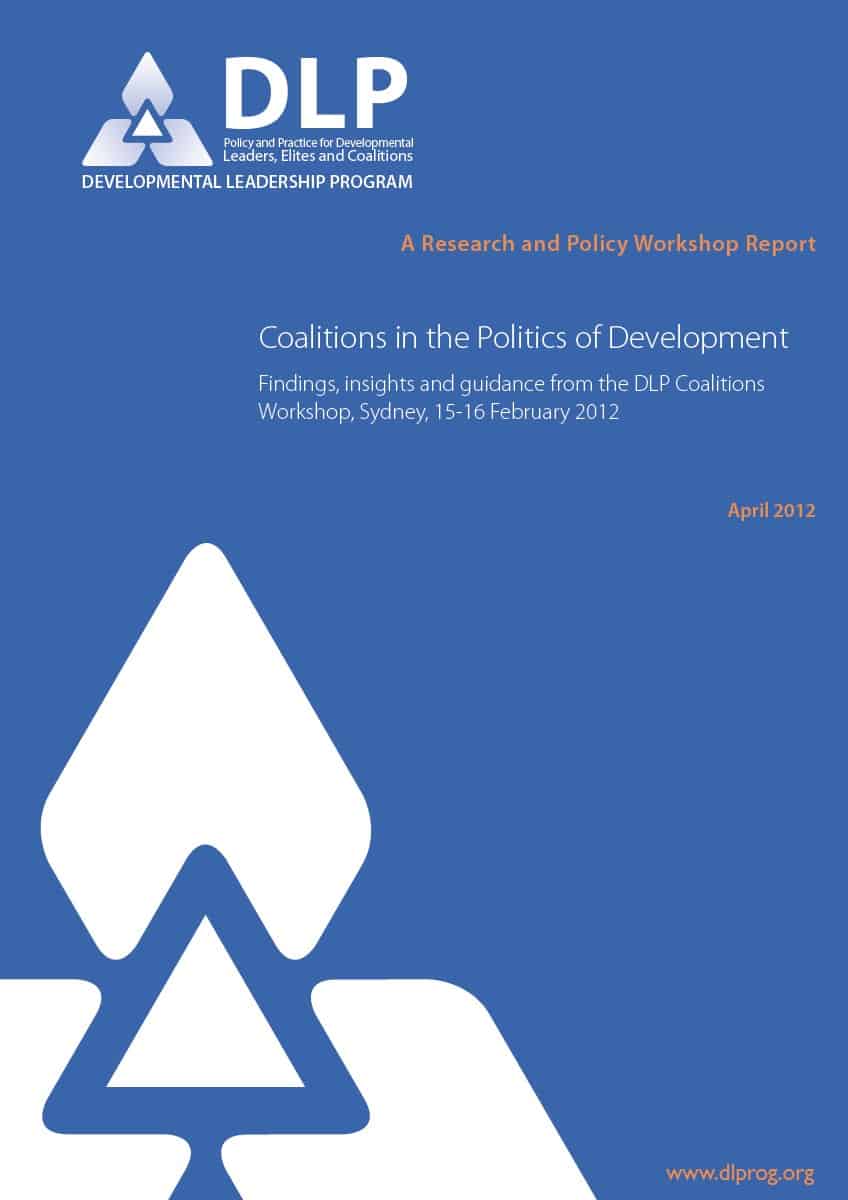The importance of ‘coalitions’ in the politics of economic and social development is perhaps most clearly indicated by the many times the term crops up in the literature and official reports. ‘Reform’, ‘advocacy’, ‘event’, ‘protest’, ‘growth’, ‘distributional’, ‘developmental’, ‘predatory’, ‘collusive’, ‘ruling’ and ‘governmental’ are all common adjectives that differentiate one type of coalition from another by their goals and functions.
But the essence is clear: coalitions are individuals or groups that come together, formally or informally, to achieve goals they could not achieve on their own. Whether focused on minor but locally important reforms; whether campaigning for the creation or abolition of a law; whether driving through major social or economic institutional or policy change; whether bringing together a series of diverse interests or groups around a common program of action; whether harnessing public and private collaboration between actors, departments or organisations – ‘coalitions’ are part and parcel of everyday politics, everywhere, nationally and sub-nationally and in all sectors and issue areas. They are also central to the inner politics that shape political settlements and help to solve collective action problems.
Yet we know very little about what makes for successful coalitions, or what the international community can do to support the emergence of developmental coalitions, rather than collusive or predatory ones. This report of a DLP coalitions workshop represents the first of a series of papers and research findings from the DLP that seek to clarify this pervasive feature of the politics of development and change. By bringing together practitioners, researchers and theorists from developed and developing societies we reckoned that some important continuities, generalisations and messages might emerge. And they did.









